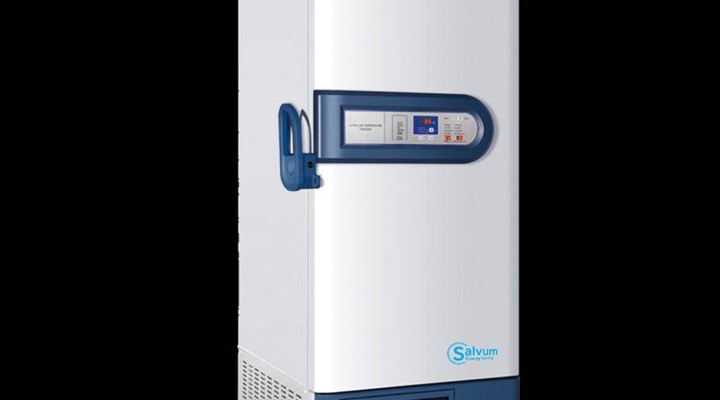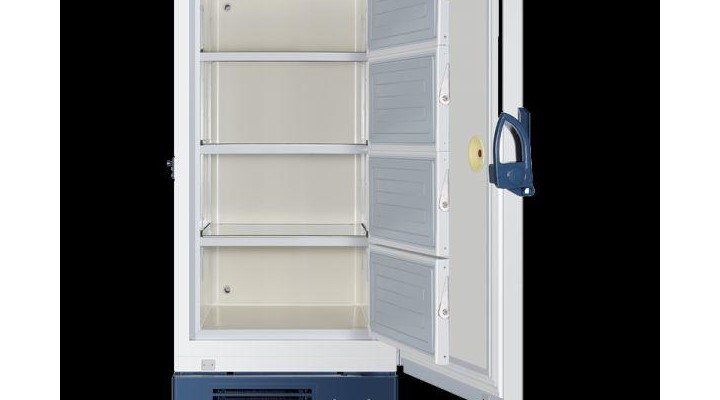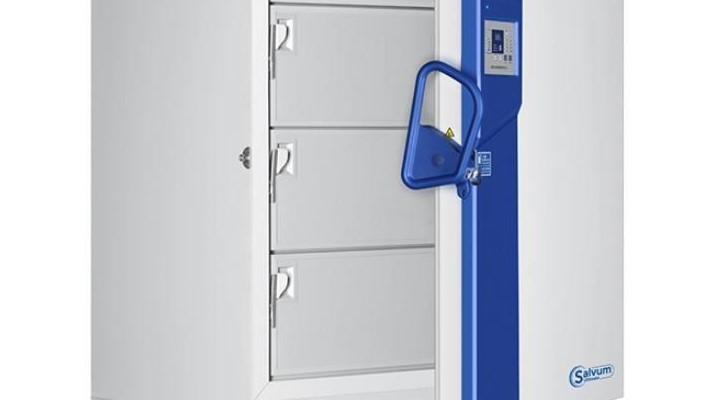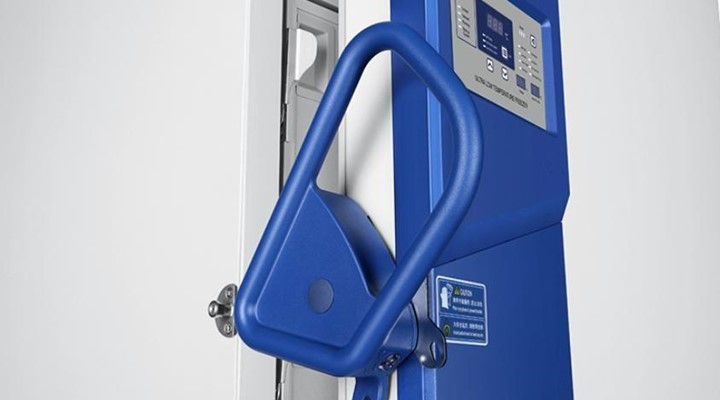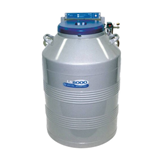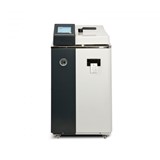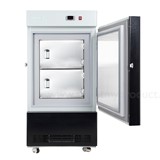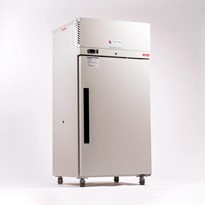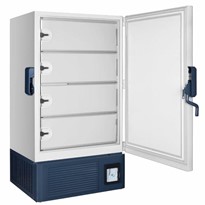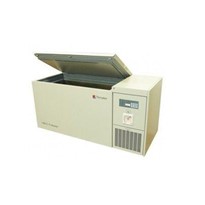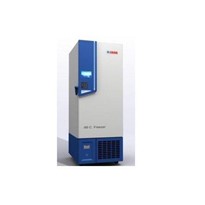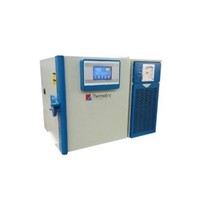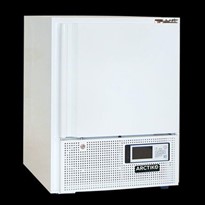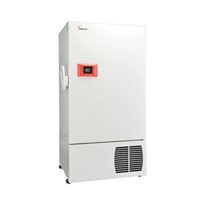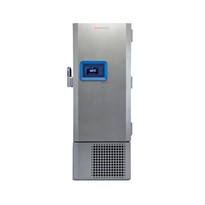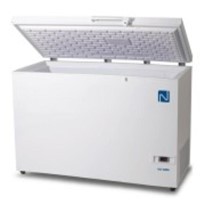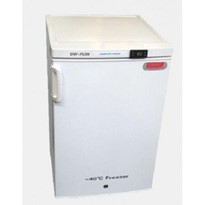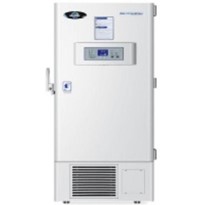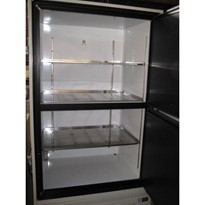-80°C ultra-low laboratory freezers have emerged as indispensable tools that provide a controlled and stable environment for long-term storage of sensitive biological materials. This blog examines the significance of -80°C ultra-low laboratory freezers and their essential role in safeguarding scientific breakthroughs and medical discoveries. Thermoline can supply the Haier brand ultralow freezers in both upright and chest models.
Understanding -80°C Ultra-Low Laboratory Freezers:
-80°C ultra-low laboratory freezers are designed to maintain an extremely low temperature, usually around -80°C (-112°F) or below. These freezers utilize advanced compressor technology, refrigeration systems, and high-quality insulation to achieve and sustain ultra-low temperatures. They are equipped with precise temperature controllers, alarms, and reporting features to ensure the safety and cold chain integrity of stored samples.
Importance of -80°C Ultra-Low Laboratory Freezers:
1. Sample Preservation:
Preserving biological samples, such as DNA, RNA, proteins, cell lines, and tissues, is essential for scientific research and medical applications. -80°C ultra-low laboratory freezers offer a stable and controlled environment that prevents sample degradation, maintaining their integrity for extended periods. This longevity is crucial for longitudinal studies, retrospective analysis, and the ability to re-evaluate data from previous experiments.
2. Biobanking and Medical Research:
Biobanks are repositories of biological samples that play a pivotal role in medical research and personalized medicine. -80°C ultra-low freezers are the backbone of biobanks, ensuring the long-term storage of valuable clinical specimens, which can be used in disease research, drug development, and biomarker discovery. These freezers contribute to advances in genomics, proteomics, and translational medicine.
3. Vaccine Storage:
Ultra-low freezers are also instrumental in vaccine storage and distribution. Vaccines, especially those containing live or temperature-sensitive components, require ultra-low temperatures to remain potent and effective. These freezers are utilized in research laboratories, pharmaceutical companies, and healthcare facilities to store vaccines for clinical trials, disease prevention, and public health initiatives.
4. Enzyme and Reagent Stability:
In many molecular biology and biochemical experiments, enzymes and reagents play a vital role. These substances are often expensive and sensitive to temperature fluctuations. By storing enzymes and reagents in -80°C ultra-low freezers, researchers can extend their shelf life and ensure consistent and reliable experimental results.
5. Disaster Recovery:
Natural disasters, power outages, or mechanical failures can be catastrophic for laboratory samples and research. -80°C ultra-low freezers often come with backup power options and alarm systems to alert users in case of temperature deviations or failures. These safety features help protect samples and provide researchers with an opportunity to mitigate potential losses.
6. Quality Control and Regulatory Compliance:
In various research and clinical settings, maintaining a strict quality control regimen is essential. -80°C ultra-low freezers comply with industry standards and guidelines for sample storage, ensuring that samples meet the necessary requirements for research reproducibility and regulatory compliance.
Best Practices for Using -80°C Ultra-Low Laboratory Freezers:
To ensure peak performance and longevity of -80°C ultra-low freezers, best practice needs to be followed:
1. Regular Maintenance:
Perform routine maintenance, including cleaning, defrosting, and compressor checks, as recommended by the manufacturer. Regular maintenance helps prevent malfunctions and extends the lifespan of the freezer.
2. Temperature Monitoring:
Implement a robust temperature monitoring system that includes alarms to alert users in case of temperature fluctuations or power outages. Continuous monitoring ensures immediate action can be taken to safeguard stored samples.
3. Organized Inventory:
Maintain a well-organized inventory system for easy sample retrieval and to prevent unnecessary freezer door openings, which can lead to temperature fluctuations.
4. Consider Redundancy:
For critical samples, consider storing duplicate samples in different -80°C ultra-low freezers or in alternative storage formats (e.g., liquid nitrogen tanks). This redundancy minimizes the risk of sample loss in the event of equipment failure.
Conclusion:
-80°C ultra-low laboratory freezers are essential tools for preserving the integrity and longevity of valuable biological samples. Their precise temperature control, stability, and safety features make them indispensable for scientific research, biobanking, and medical applications. By providing a controlled environment for sample storage, these freezers contribute to groundbreaking discoveries, medical advancements, and the improvement of human health. As technology continues to advance, -80°C ultra-low laboratory freezers will remain at the forefront of scientific research and be the cornerstone of sample preservation in laboratories worldwide.


